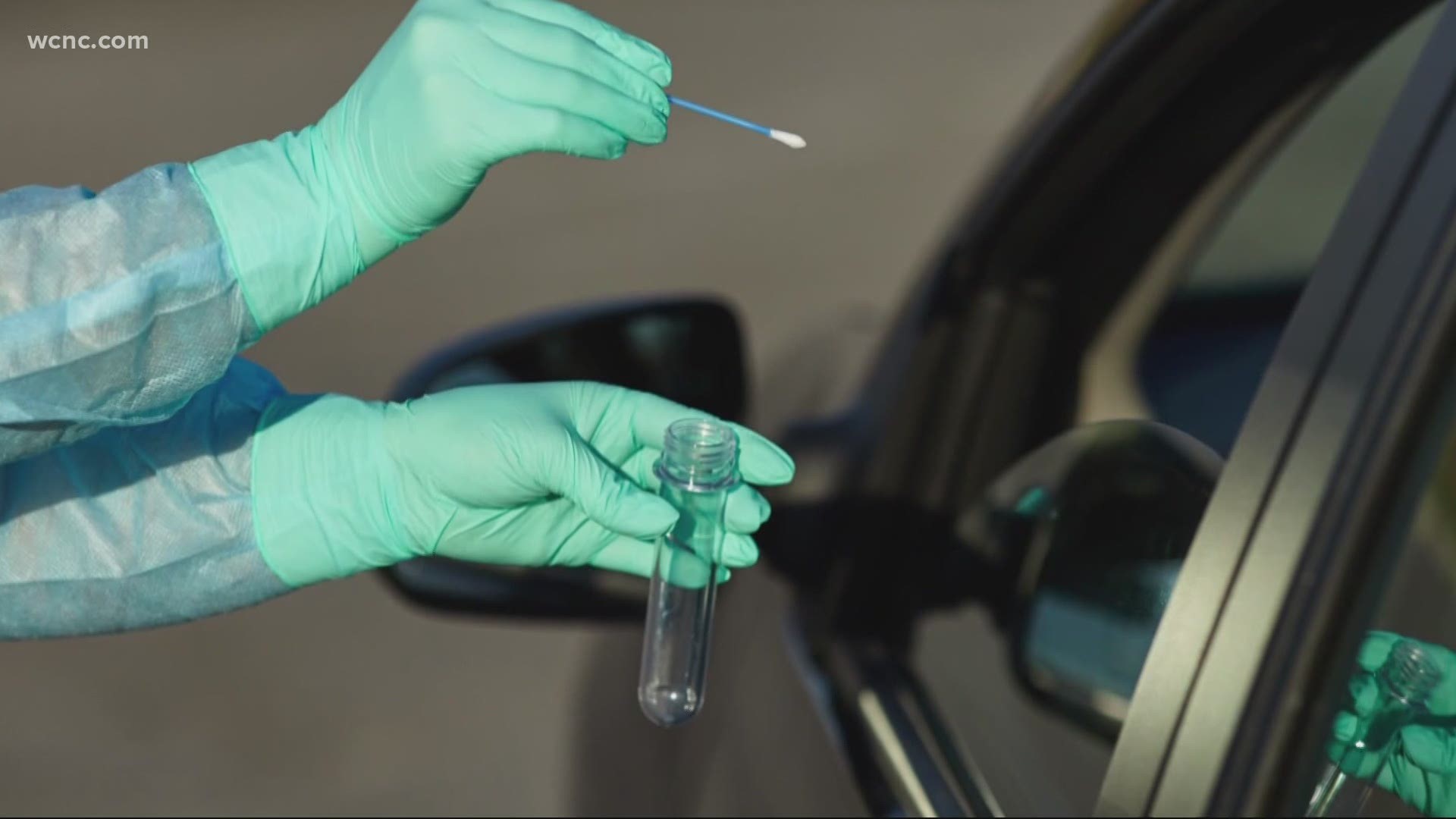CHARLOTTE, N.C. — Atrium Health is asking for the public’s help to aid in testing underserved communities in the COVID-19 pandemic after demand has increased at roving testing centers.
The healthcare system started deploying roving testing centers in underserved communities as COVID-19 spread in the Charlotte area. It uses a sophisticated data model to identify hotspots and where to station the centers.
Since widespread testing is not available, the healthcare systems said in a release that it’s important these tests are left for the most at-risk populations, including Black, Hispanic, and underserved communities.
“We want to make sure that those who need access to testing have the opportunity to get tested, but for many low-income communities, there are barriers, such as transportation, access to technology, or working in an essential job so that you need to be able to access testing in after-hours time,” said Kinneil Coltman, DHA, senior vice president, chief community and external affairs officer, Atrium Health.
Based on the latest data released by Mecklenburg County, Black and Hispanic populations make up more than half of the positive cases at 56.3 percent combined.
Lately, Atrium Health said it has started to notice that people who live and work in the hotspot areas have been crowded out of testing opportunities by community members-at-large who have gone to the roving testing centers, rather than utilizing other methods.
"We're asking for the broader community to lock arms with us in making sure that we're not allowing these sites to be overcrowded by folks that have other pathways to access testing,” Coltman said.
Coltman recommended those with other options for testing call their provider, call the COVID-19 hotline, or do a virtual visit to schedule a test.
Current North Carolina Department of Health and Human Services guidelines for testing include the following:
- Anyone with symptoms suggestive of COVID-19.
- Close contacts of known positive cases, regardless of symptoms.
- Groups of some of the populations with higher risk of exposure or a higher risk of severe disease if they become infected. People in these groups should get tested if they believe they may have been exposed to COVID-19, whether or not they have symptoms.
- People who live in or have regular contact with high-risk settings (e.g., long-term care facility, homeless shelter, correctional facility, migrant farmworker camp).
- People from historically marginalized populations who have been disproportionately impacted by COVID-19. This fact sheet provides best practices for community testing in historically marginalized populations.
- Frontline and essential workers (grocery store clerks, gas station attendants, child care workers, construction sites, processing plants, etc.)
- Health care workers or first responders.
- People who are at higher risk of severe illness.
- People who have attended protests, rallies, or other mass gatherings could have been exposed to someone with COVID-19 or could have exposed others.
Mecklenburg County has put together a map of testing sites within the county via this link. Residents who have questions about COVID-19 and are seeking testing are still encouraged to speak to their doctor or call Mecklenburg County Public Health's COVID-19 help line at 980-314-9400.

